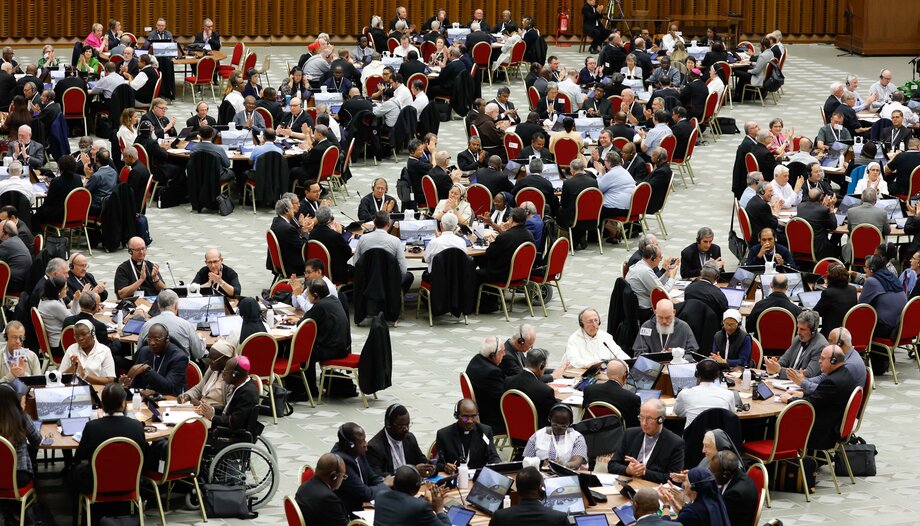Next October, the second phase of the Synod of Bishops on Synodality. The work should focus primarily on ecclesial co-responsibility, which is differentiated in the Church.
This implies insisting on the Christian responsibility of each baptized person and on the ongoing formation derived from baptism and confirmation. The Synod should provide a theological basis for the need, in today's Church, for this co-responsibility and formation.
Stewardship is based on the principles of the Old and New Testaments, on Tradition, on the Magisterium, especially the Second Vatican Council and subsequent Magisterium.
The Church is born of Christ's will to evangelize. Evangelization is the fundamental task of the Church: "...".The Church received from the Apostles the solemn mandate of Christ to proclaim the truth that saves us and to carry it out to the ends of the earth." (LG, 17).
But evangelization is unthinkable without ecclesial communion. A divided community falls on its own: "Every kingdom divided against itself is laid waste, and every city or house divided against itself will not stand." (Mt 12:25).
Co-responsibility is linked to communion; it is the way of living communion among adult Christians. Therefore, communion, co-responsibility and evangelization are intimately linked.
Communion and the way of living it among adult Christians, which is co-responsibility, demands a constant attitude of personal conversion and ongoing formation for all (bishops, priests, religious and laity), since we all find it difficult to share and to expose our opinions and way of seeing things to the opinions and consensus of others.
The theological and pastoral foundation of co-responsibility should insist on these two basic aspects.
Co-responsibility for evangelization entails having clear in one's mind the structure of the Church as willed by Christ and handed down by Tradition, Sacred Scripture and the Magisterium.
It is not a question of turning the Church into a democracy in the manner of modern States, where the majority vote is what counts.
Christ has willed for his Church a structure of communion, of equal dignity of the baptized, but with pastors and faithful: "All Christ's disciples have received the task of spreading the faith according to their possibilities. But... it is proper to the priest to consummate the building up of the Body with the sacrifice of the Eucharist." (LG,17).
Everyone must be clear that such a structure cannot be changed, but this does not take anything away from co-responsibility. It is a different way of living an authentic and sincere co-responsibility.
Co-responsibility thus demands openness to the Holy Spirit, Who guides the Church and evangelization, as is clearly shown in the Acts of the Apostles.
It demands constant dialogue and listening, respect and consideration for all opinions, even minority ones, insofar as they do not contradict the truths of faith and morals contained in Sacred Scripture and expounded by the Magisterium, distinguishing their different degrees of certainty and their constant updating and fidelity.
Co-responsibility demands discernment, being aware at all ecclesial levels that the ultimate instance of discernment in matters that refer to the universal Church and its mission corresponds to the authentic Magisterium.
We already have co-responsibility structures. It is urgent that, at all levels, they work and work well.
The various parish, presbyteral and episcopal councils cannot be mere bodies that are on paper but at the moment of truth do not operate as intended. There we have a whole task ahead of us.
We cannot forget, even if it is more difficult, that the formation of the lay faithful must seek their involvement in all areas of civil society.
The Church in its fundamental structure is a combination of lay faithful and priests. In order for this combination to work well for sanctification and evangelization, each member of the faithful must know how to be in his or her place, without clericalizing the laity and without laicizing the priest.







